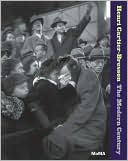Thin
Critically acclaimed for Girl Culture and Fast Forward, Lauren Greenfield continues her exploration of contemporary female culture with Thin, a groundbreaking book about eating disorders. Greenfield's photographs are paired with extensive interviews and journal entries from twenty girls and women who are suffering from various afflictions. We meet 15-year-old Brittany, who is convinced that being thin is the only way to gain acceptance among her peers; Alisa, a divorced mother of two whose...
Search in google:
Critically acclaimed for Girl Culture and Fast Forward, Lauren Greenfield continues her exploration of contemporary female culture with Thin, a groundbreaking book about eating disorders. Greenfield's photographs are paired with extensive interviews and journal entries from twenty girls and women who are suffering from various afflictions. We meet 15-year-old Brittany, who is convinced that being thin is the only way to gain acceptance among her peers; Alisa, a divorced mother of two whose hatred of her body is manifested in her relentless compulsion to purge; Shelly, who has been battling anorexia for six years and has had a feeding tube surgically implanted in her stomach; as well as many others. Alongside these personal stories are essays on the sociology and science of eating disorders by renowned researchers Joan Jacobs Brumberg, Dr. David Herzog, and Dr. Michael Strober. These intimate photographs, frank voices, and thoughtful discussions combine to make Thin not only the first book of its kind but also a portrait of profound understanding.
\ From Barnes & NobleWith Girl Culture and Fast Forward, photographer Lauren Greenfield cast a revealing lens on the lives of American girls and young women. In Thin, she and Cornell professor Joan Jacobs Brumberg offer us rare access into the experiences of 20 female residents of a Florida eating disorder treatment facility. Greenfield's striking pictures, exclusive interviews with the women and girls, and personal journal entries combine to give reality to what might seem to be a theoretical problem. An unforgettable look at a malady that will affect one out of seven American women.\ \ \ \ \ From the Publisher'Thin' exposes chilling self-hatred Photographs by Lauren Greenfield look at how external appearances can clash mightily with self-perceptions. And more. \ Opportunities abound for the documentarian of human misery: war, hunger, poverty, homelessness, domestic violence, abuse. For the "concerned photographer," a term coined in the late 1960s to describe a commitment to conscientious, humane witness, it's a matter of deciding where to turn, what to focus on and how.\ Lauren Greenfield, a photojournalist based in L.A. and a member of the photo agency VII, has directed her attention since the early '90s to phenomena that arise out of our culture of excess problems born of economic affluence and social privilege, media saturation and the societal drive toward immediate gratification. She chronicles the external manifestations of mainstream America's compromised soul.\ Her first major project, published in the book "Fast Forward: Growing Up in the Shadow of Hollywood," examined sexually accelerated, artifice-happy youth culture.\ "Girl Culture," her next project, expanded upon one facet of the first: body image as expression of identity and reflection of cultural expectation.\ Her newest work zooms in closer still. "Thin" takes a look at residents of the Renfrew Center, a Florida treatment facility for women with eating disorders.\ The book "Thin" was recently published by Chronicle Books, and "Thin," the documentary, is scheduled to air at 9 p.m. Nov. 14 on HBO. The large color photographs from the project on view at Fahey / Klein Gallery constitute no more than a slender slice from the overall enterprise.\ They are not meant to stand alone, nor do they communicate consistently well in this context. They need the partnership of words, and they get that brilliantly in the book, in the form of personal narratives and diary entries by the subjects, commentary by medical and sociological experts and a tone-setting introduction by Greenfield.\ Although the project seems to fit easily on a continuum with her other work, Greenfield asserts that societal conditions are only part of the story of "Thin"; mental illness is the real issue.\ The text in the book fleshes out the particularities of each woman's interior struggle.\ The pictures describe external appearances that clash mightily with their self-perceptions. Where we see famine-level emaciation, they see an ideal not quite reached. We see quite literally in the portrait of Ata with her arms clasped overhead the attenuated limbs and knobby joints of an Egon Schiele figure; they see in themselves the ample, overloaded bodies of a Rubens.\ One of the most captivating pairs of pictures shows a young woman named Aiva on her first day of treatment and 10 weeks later, upon completion. A barbed reversal of the diet ad pitch, the "before" photograph shows 16-year-old Aiva looking like a bony, angry preteen. "After," the angles of her face have softened, her chest, torso and arms have filled out, and she has blossomed into a healthy (and happier) looking young woman.\ A selection of photographs from Greenfield's previous two series is also on view at the gallery, and they are pithy evidence of all sorts of cultural distortions having to do with wanting (and having) too much, too fast. They are situational tableaux, intertwining of character, context and action.\ The images on view from "Thin" are largely portraits, many taken on the grassy institutional grounds of the Renfrew Center. They introduce the players in this painful saga of self-loathing and self-improvement, but they can't deliver much more in the way of feeling or fact. A few are chilling in their depiction of the extremes these women have reached through purging and restricting, as well as cutting.\ Greenfield's pictures are intimate and candid. Their authenticity derives from the trust required between photographer and subject, trust that each will deal only in raw truths, and with respect.\ \ \








